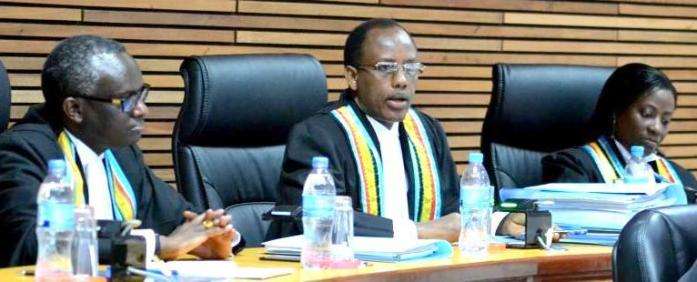By Jean Paul Nkurunziza and Alain Ndikumana |
Following on from the State of Internet Freedoms in Burundi 2014 report published last May, this brief presents an update on Information and Communication Technology (ICT) access, the legal and regulatory policies and practices that affect internet freedoms in the Burundi. It covers the period from March 2014 to May 2015. Notably, Burundi has been rocked by a coup attempt and intermittent public protests against President Pierre Nkurunziza’s plan to contest for a third term in office in apparent defiance of a two terms limit set by the constitution.
During the upheavals in April and May, the country’s communications regulator reportedly directed internet service providers to cut access to social media, and several media houses were pillaged. Meanwhile, the East African Court of Justice declared sections of the country’s media law undemocratic, but it upheld articles on the regulation of print and online media, which have been criticised by journalists and human rights defenders for negating freedom of expression.
Read the full State of Internet Freedoms in Burundi as of June 2015
East African Court Declares Sections of Burundi’s Media Law ‘Undemocratic’
By Wairagala Wakabi |
The East African Court of Justice (EACJ) has ruled that sections of Burundi’s Press Law of 2013 violate democratic principles and should be repealed. However, the court upheld several other clauses, including those related to regulation of print and online media.
Delivered on May 15 at the Arusha, Tanzania-based court, the ruling found two articles (19 & and 20) in contravention of the principles on democracy and accountability in the constitution of the East African Community (EAC), the regional inter-governmental organisation that groups Burundi, Kenya, Rwanda, Tanzania, and Uganda.
Judges said restrictions in Article 19, prohibited the “dissemination of information on the stability of the currency, offensive articles or reports regarding public or private persons, information that may harm the credit of the state and national economy, diplomacy, scientific research and reports of Commissions of Inquiry by the state” and could not stand the test of reasonability, rationality or proportionality.
On Article 20, which requires journalists to disclose confidential sources of information, the judges ruled that other laws could be enacted to deal with state secrets rather than forcing journalists to disclose their confidential sources.
The ruling comes nearly two years after the Burundi Journalists Union (BJU) lodged a petition before the regional court asking judges to order an immediate repeal of 42 articles in the law, which they said were inimical to democracy and freedom of expression.
In the July 2013 petition, the journalists’ union contested Article 29 that makes it a requirement for online publications and news agencies to disclose certain information to the National Communication Council (CNC) or the public prosecutor’s office. This information includes the first edition of the publication, the name, nationality and full address and criminal record of the Director of the publication, the full address of the web host, the languages of publication and the constitution of the web publisher.
However, in their ruling, the judges did not refer to this article and to others which the petitioners said provided “an unduly onerous and restrictive framework for the regulation of the print and web media.”
Other articles which the journalists wanted invalidated relate to the requirement of compulsory accreditation for all journalists, prior censorship regime for films to be directed in Burundi, the right of reply and correction “that is vaguely worded and unduly impedes the media’s right to freedom of expression”, and the “hefty” fines and penalties specified by the law.
The judges stated that under the articles of the EAC Treaty, “the principles of democracy must of necessity include adherence to press freedom.” They noted that a free press goes hand in hand with the principles of accountability and transparency, two fundamental principles reiterated in the Treaty which partner states have to adhere to.
Moreover, the judges noted that while the EACJ could not superintend the organs of partner states in the ways they enact their laws, “it is an obligation on their part not to enact or sustain laws that completely negate the purpose for which the Treaty was itself enacted.”
The judges further stated that they would direct the Republic of Burundi, “within its internal legal processes, to implement the EACJ judgment.”
In pleadings before the court, the Burundi government argued that since it was preparing for elections in 2015, invalidating the law would jeorpadise its delicate stability.
Burundi is reeling under the effects of political unrest that has seen media freedom take a big hit. President Pierre Nkurunziza’s resolve to contest for a third term in office in defiance of a two terms limit set by the constitution sparked mass protests in the country, during which government banned live reporting from the scenes of the demonstrations.
Broadcasts from three popular radio stations – Radio Isanganiro, Radio Publique Africaine (RPA), and Radio Bonesha – were also suspended beyond the capital Bujumbura.
Last week, amidst a coup attempt, the privately owned RPA was hit by a rocket and reportedly set ablaze by police and pro- ruling party youth. Rema radio and television, said to be allied to the ruling party, was torched by protesters. State-owned radio and TV were forced on and off air and their headquarters was the scene of fierce fighting, as forces jostled for the control of Bujumbura and the channels of mass communication.
There were reports that Whatsapp, twitter and Facebook were cut off to limit their use by protest organisers following orders in writing by the country’s telecommunications regulator, L’Agence de Régulation et de Contrôle des Télécommunications (ARCT), to block certain sites.
Read more about the policies and practices defining the country’s internet freedom in The State of Internet Freedoms in Burundi 2014 report.
Image Credit: East African Court of Justice, Arusha


